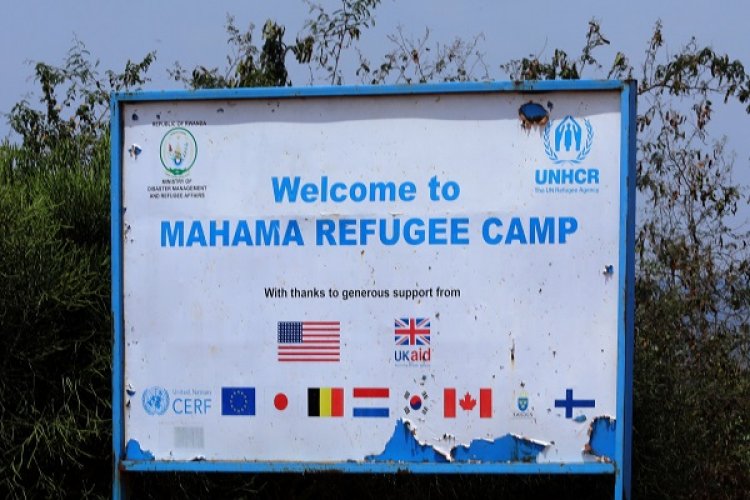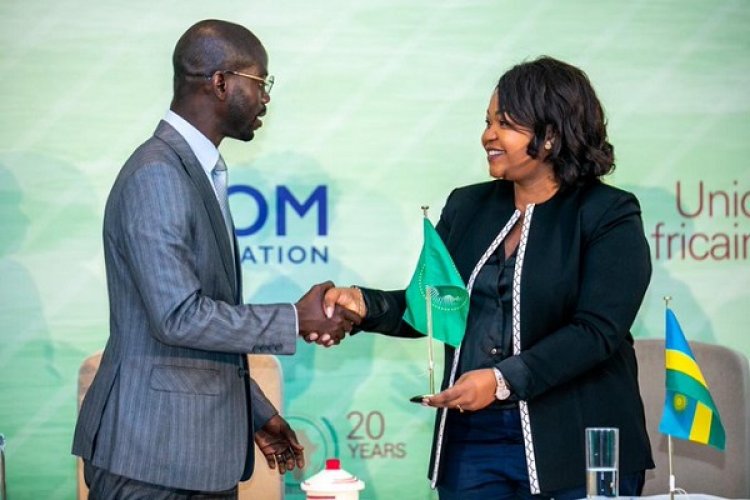Do refugees or migrants take anything away from us?
This is the question that arose in attempts to find answers as to why refugees or migrants appear to be unwanted in some areas of the globe, and whether Africa countries, too, should see them as a burden.
Refugees: A burden or untapped economic potential? was the topic of the Friday Twitter discussion dubbed #TalkRwandaSpaces co-hosted by this Publisher.
Speakers included Golooba Mutebi, Uganda-based researcher and Dr. Joseph Ryarasa Nkurunziza, Executive Director at Never Again Rwanda, a local civil society organization.
Others are Dr. Frank Habineza, member of Parliament who is also President of the Democratic Green Party of Rwanda, James Munyaneza, a journalist, and political analyst Gatete Ruhumuriza.
While most opine that refugees or immigrants are a resource, they say this only happens where there is conducive environment – free movement, access to work, doing business and education, among other rights — that grants them opportunities for them to become self-reliant and be less of a burden.
“Refugees or migrants become a burden in the society or in any country that hasn’t planned well to cater for them. As a person from the civil society they are potential to economic development if their skills are exploited, and are given a favorable environment,” says Joseph Nkurunziza.
Enormous potential
According to Golooba Mutebi, already countries like Australia and the United States are historically built around refugees, and the reasons for their success — the creativity, the dynamism — has everything to do with the fact that they receive immigrants.
“I would like to say that immigrants hold enormous potential. They are creative, they are very enterprising. Immigrants come to their adopted countries determined to succeed, and in most cases they do,” he observed.
I would like to say that immigrants hold enormous potential. They are creative, they are very enterprising. Immigrants come to their adopted countries determined to succeed, and in most cases they do.
Golooba Mutebi, Uganda-based researcher
However, unlike in Africa some western countries/societies continue to view refugees or immigrants as a burden due to reasons ranging from the fact that there is little scope for them to be self-reliant hence becoming dependent on the State.
Even in countries grappling with ageing population, labor and skills shortages, they are still averse to taking in refugees.
This, according to Mr. Mutebi, is largely because some are liberal democracies where governments are in power because of voters, and negative reaction towards allowing any large numbers of refugees could trigger voting out a government.
“In many countries tendency for governments to listen to citizens and to act in line with what citizens want is very high.”
Speakers say this could explain why some Western governments opt for sending these ‘unwanted’ people abroad like in the recent case where Rwanda and the United Kingdom signed asylum transfer deal.
Also read: UK-Rwanda migrants deal: What UNHCR thinks of externalization of protection
Africa situation
Some speakers are of the view that Africa allows refugees to quickly integrate, and the environment is such that they deprive nothing of nationals of the host countries.
They are either put in refugee camps in which they are looked after by humanitarian organisations, or build their own settlements and can engage in income generating activities.
Evidence suggest that in countries like Uganda that is praised for having a generous refugee policy regime they are creating jobs, paying taxes and other things that impact the economy.
“What does a refugee or immigrant takes away from me? Absolutely nothing. He will not deprive me of use of any public facility. He is not going to take my job” said Golooba.
Rwanda case
Rwanda so far hosts nearly 130,000 refugees made of Congolese nationals who have been here for over two decades, and Burundians. To these adds hundreds of asylum evacuees.
The United Nations in 2017 estimated the economic potential of refugees in Rwanda at between $450 million and $500 million annually, if they are given the opportunity to participate in the labour market.
Most so far heavily rely on humanitarian aid which was cut by 60 per cent for majority of them in May last year. The UN refugee agency recently said that $9.8 million was needed to restore the full food rations.
Inclusion still faces issues mainly non-legal limitations such as lack of access to capital in forms of loans or grants, limitations in access to land for agriculture, jobs and education to be able to fully contribute to the growth of the economy.
An assessment jointly carried out by UNHCR and World Food Programme in 2020 estimated camp-based refugees who live on incomes from job and wage employment at only 4.1 per cent, while 8.2 per cent derive livelihood from small businesses.
However, Rwanda and a number of partners have been working out inclusion schemes that seek to address these limitations.





